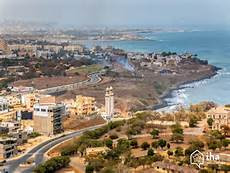Insideafrik
DAKAR (Thomson Reuters Foundation) - Children
in Ivory Coast bear the brunt of sexual violence in a culture where rape is
widely considered "insignificant" and perpetrators usually go
unpunished, activists say.
Two in three rape victims in the West African nation are young
girls, according to a recent U.N. report, which recorded some 1,130 cases of
rape between 2012 and 2015.
Yet the number of rape cases is likely to be far higher, the
U.N.'s Ivory Coast mission (UNOCI) said, as many victims do not come forward
due to the fear of retaliation and stigma within their communities and a lack
of confidence in the legal system.
While Ivory Coast has recovered from two civil wars, in 2002 and
2011, to boast one of Africa's fastest growing economies, years of conflict
have fueled a culture of violence, where rape is rife, according to the UNOCI.
"Rape is considered banal by a lot of people, they claim
sex is an obligatory rite of passage for every woman," said Jean Claude Kobena
of the Abidjan-based group SOS Violences Sexuelles.
"They think no one should be imprisoned for an act they see
as so insignificant," he told the Thomson Reuters Foundation.
Children are particularly vulnerable to sexual violence because
so many roam the streets, out of school and forced to work because of
widespread poverty, child rights experts say.
Almost half of the 20 million population of Ivory Coast live in
poverty, and six out of every 10 children of secondary school age are not in
education, according to data from the World Bank.
"Millions of kids are out of school and on the streets,
relying on odd jobs to survive, which exposes them to abuse and rape,"
said Save the Children's country director Famari Barro.
NO MORE
'MISDEMEANORS'
Rape victims and their families are often not aware of how to
report the crime, or cannot afford to do so, activists say.
Victims may have to travel far to a court, and they must first
obtain a medical certificate - which can cost up to 50,000 CFA francs ($85) -
to prove they have been raped before pressing charges, said the United Nations
children's agency (UNICEF).
Most rape cases in Ivory Coast are therefore settled out of
court, usually without the victim's consent, with the intention of avoiding
stigma and preserving peace within communities, and sparing the suspected
rapist from jail, the UNOCI's report said.
"For victims to seek justice, the culture of settlements
must end, allowing them to speak up and be referred to support services,"
said UNICEF deputy representative Christina de Bruin.
While investigations were opened in 90 percent of rape cases
documented by the UNOCI, less than a fifth led to a conviction.
In all 203 cases that ended in conviction, the perpetrators were
found guilty of a lesser offense than rape - often indecent assault - which is
a common legal practice, the report said.
"Although seen as a way for victims to access justice and
facilitate a prompt judgment, this practice minimizes the gravity of
rape," the UNOCI said.
Ivory Coast should revise its criminal code, which punishes rape
without defining it, provide victims with free legal aid and hold special court
sessions for rape cases, the UNOCI said.
The justice ministry this week in a confidential document seen
by the Thomson Reuters Foundation issued a notice telling the authorities not
to recategorize rapes as 'misdemeanors'.
Issued a week after the UNOCI report, it also says sexual
offences must be fully investigated and prosecuted, even if out-of-court
settlements are reached or complaints are withdrawn.
The Ivorian government spokesman did not respond to requests for
comment.
"Children have the right to be protected from these
criminal acts which can cause lifelong incurable wounds," said de Bruin.
($1 = 596.8100 CFA francs)
(Reporting By Kieran Guilbert, Editing by Ros Russell; Please
credit the Thomson Reuters Foundation, the charitable arm of Thomson Reuters,
that covers humanitarian news, women's rights, trafficking, corruption and
climate change. Visit news.trust.org)

No comments:
Post a Comment